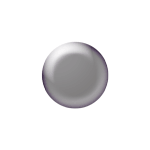
| Naturescape
|
|
|
|
Landscape your property to expand wildlife habitat, reduce runoff, and increase natural air conditioning.
Leave natural riparian (stream-side) vegetation in place.
|
|
|

| Choose non-invasive plant species for your garden
|
|
|
|
Some plant seeds carry far and wide. Choose plants carefully if you live close to a natural area, and keep aggressive plants in check.
|
|
|
|
Problem Plants:
English Ivy
Ivy chokes out native plants at ground level, eliminating songbird habitat and wildlife food sources.
As ivy grows upward on trees it chokes out leaf bearing branches. When the crown of the tree becomes covered, the tree dies.
Ivy fruit is an attractive food to non-native birds such as starlings. The seeds are undigested, and spread easily in the bird droppings.
|
|
|
|
Himalayan Blackberry
Blackberry grows quickly and pushes out native plants over large areas, creating a single species environment.
Even though blackberry provides fruit for some birds and insects during late summer, it's no compensation for the various native plants which provide food throughout the year.
|
|
|

| Protect natural areas
|
|
|
|
Avoid placing unwanted plant prunings, lawn clippings, or discarded non-native plants in natural areas, parks, lane or road ends, or boulevard edges.
Recycle greenery in yard bags or containers for curb-side pick-up.
|
|
|

| Avoid use of harmful chemicals outdoors
|
|
|
|
Protect soil and water quality and wildlife.
Use organic products, natural alternatives, plant or site specific methods.
|
|
|

| Protect storm drains
|
|
|
|
Almost all storm drains on the streets on the North Shore discharge directly into creeks or rivers which in turn, flow into Burrard Inlet.
"Storm Sewers" are not "Sanitary Sewers".
Soaps, cleaners, oils, waste, pesticides, concrete wash water, swimming pool and hot tub water are hazardous to stream organisms, fish and wildlife.
|
|
|

| Protect creeks
|
|
|
|
Avoid washing anything in a creek.
Paint, cleaners, herbicides and pesticides are harmful to aquatic life.
|
|
|

| Protect beneficial insects
|
|
|
|
Avoid using outdoor electric or electronic bug catchers.
Studies show that this equipment is not effective at killing biting insects such as mosquitoes, but does kill large numbers of beneficial insects which prey on garden pests.
Use natural repellants, such as citronella, to repel biting insects.
Use gardening practices and plants which attract lady bugs and lace wings to your garden.
|
|
|

| Compost in bins
|
|
|
|
Keep birdseed, tree fruit and nuts off the ground.
Never leave pet food or people food outside - to prevent rat infestations and to avoid attracting and habituating bears, raccoons and other wildlife.
If you live in an active bear area, dig your compost under more often and avoid adding produce or kitchen scraps altogether.
|
|
|

| Keep pets out of natural areas
|
|
|
|
Protect wildlife and your pet.
Many ground nesting birds and small animals are vulnerable. Dogs and cats are a threat to them.
Larger mammals, such as raccoons and bears will defend themselves if cornered.
Coyotes will eat cats and dogs, given the chance.
|
|
|

| Never release non-indigenous animals
|
|
|
|
Most will not survive for long, either falling prey or starving.
Those which do find food and shelter will compete with, prey on, or infect native species - possibly displacing or eliminating them.
|
|
|
|
Natural areas, planted sites and agricultural properties, no matter how small, are already populated.
|
|
|

